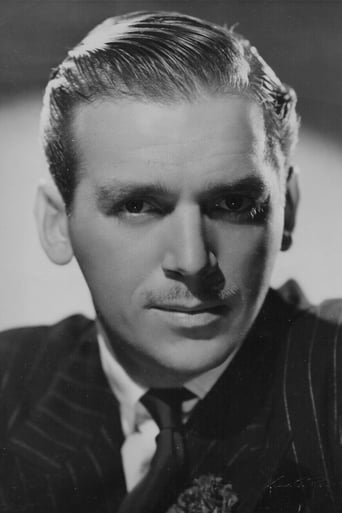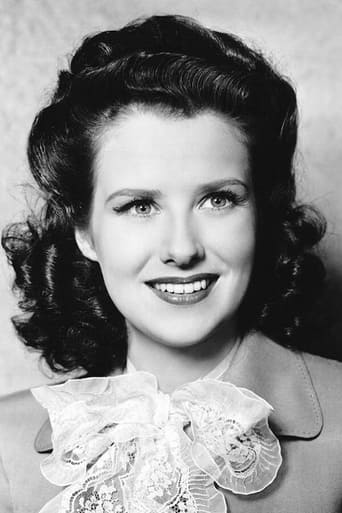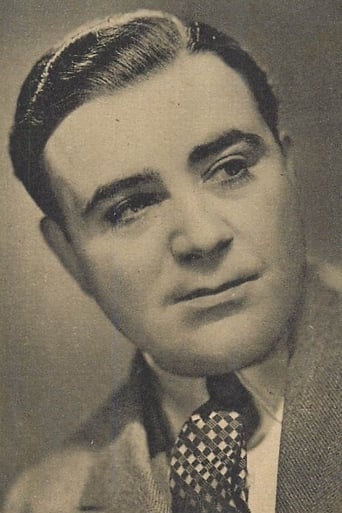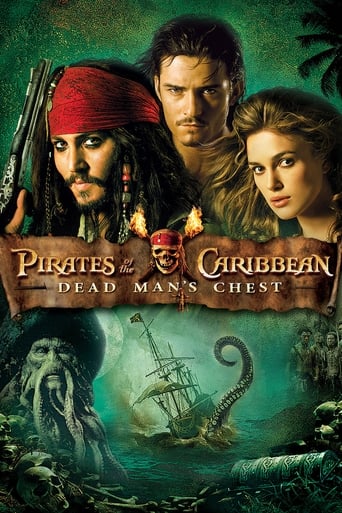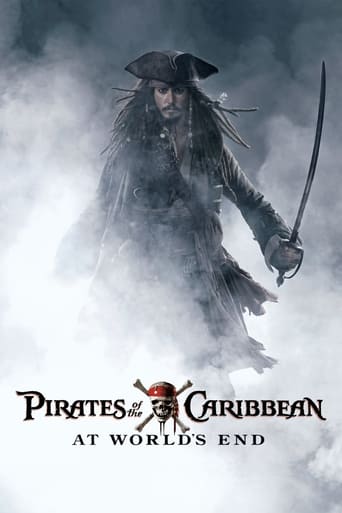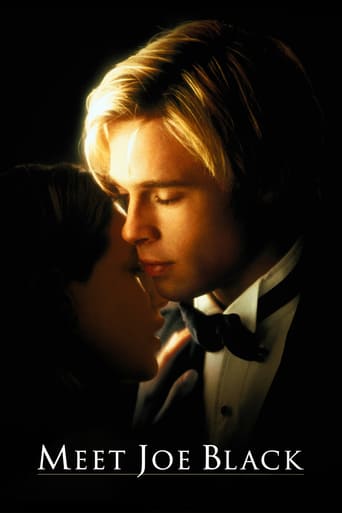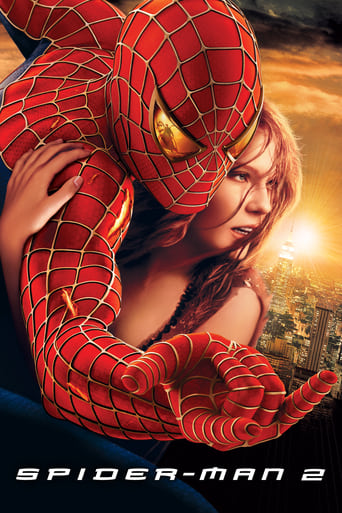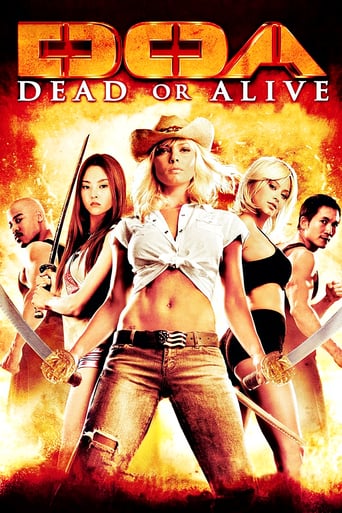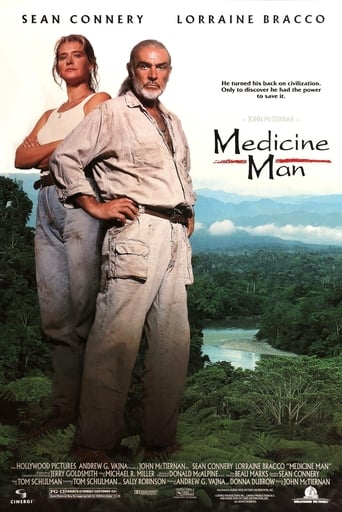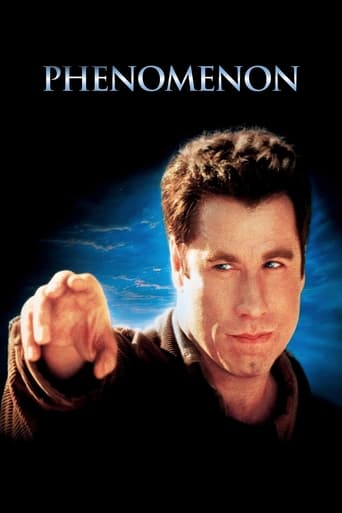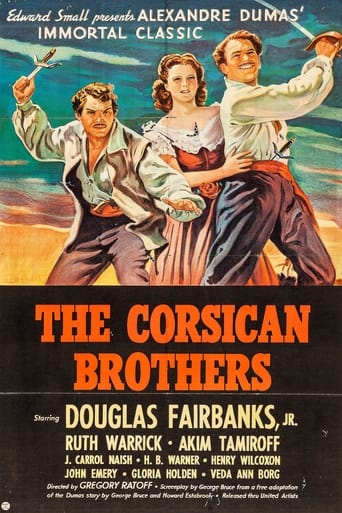
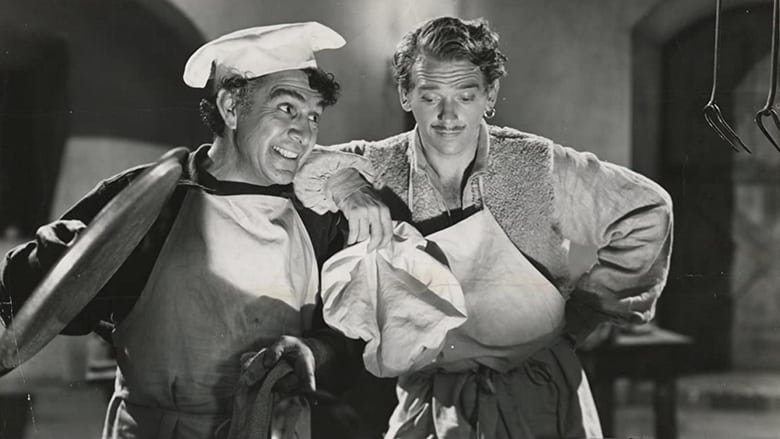
The Corsican Brothers (1941)
Cultured Mario and outlaw Lucien, twins separated at birth, join forces to avenge their parents' death at the hands of evil Colonna. Because each feels all the same sensations experienced by the other, swordplay is difficult for them. Worse yet, raised very differently, they struggle to find common ground between their conflicting personalities. But to defeat their enemy, the two will have to overcome the obstacles and work as a team.
Watch Trailer
Cast


Similar titles
Reviews
Another rousing swashbuckling adventure from the pen of Alexandre Dumas. Douglas Fairbanks Jr. stars as the storied Corsican Brothers.The story opens with Count Franchi (Henry Wilcoxen) awaiting the imminent birth of his first born and heir. Twin boys are delivered to Countess Franchi (Gloria Holden). Dr. Paoli (H.B. Warner) delivers the news that the twins are in fact Siamese twins joined at the hip. The Count has prepared a celebration nonetheless, however the evil Baron Colonna (Akim Tamiroff) and his men have infiltrated the gathering and attack the Franchi household burning the estate to the ground killing all inside.Dr. Paoli and dedicated servant Lorenzo (J. Carroll Naish) manage to escape through a secret passage with the twins. The doctor manages to separate the babies in an operation. They are named Lucien and Mario respectively. They then decide that to protect the twins, they should be raised separately. Trusted Franchi friends, the Dupres (Walter Kingsford, Nana Bryant) agree to raise Mario in Paris while Lorenzo takes Lucien to be raised deep within the Corsican forest.Twenty years later, the boys have grown. Lucien has become a bandit praying upon Colonna's men. Mario meanwhile, has been living the good life in Paris. When they turn twenty-one they are re-united in the forest camp of Lucien and Lorenzo. The two lead separate raids on Colonna and his men, popping up in two separate places to confuse Colonna and his cousin Tomasso (John Emery) in the process.Countess Isabelle Gravini (Ruth Warrick) whom Mario had met in Paris arrives on the scene having been forced to listen to Colonna's proposal of marriage following the latter's murder of her father. Isabelle is abducted and taken to the Corsican Brothers camp. Since each twin experiences the feelings and pain of the other, they of course both fall in love with her.Isabelle prefers Mario which causes feelings of jealousy and vengeance within Lucien. Fearing that she has come between the two, she returns to Colonna's house. Mario impersonating a jewel salesman attempts to rescue her. His ruse is discovered and he is arrested by Colonna. As Mario is being tortured, Lucien feels his pain. Will he ride to save his brother? Will the evil Baron be defeated? Who will win the hand of the lovely Isabelle? And, there's a great sword fight at the story's climax, not to be missed.Douglas Fairbanks Jr. had been in films since his childhood. Although he tried not to emulate his famous father, he was always at his best in adventure films. This was his final film before entering WWII after which (six years later) his career never regained its momentum. Akim Tamiroff makes a suitably distasteful and slimy villain. J. Carroll Naish turns in another of his solid supporting roles. Henry Wilcoxen's role is all but too brief, but he does get in a little sword play before his exit. Ruth Warwick makes a fetching Countess worthy of the brothers competition.Other recognizable faces in the cast include William Farnum (who had worked with Doug Sr.), Henry Brandon. Ric Vallin, Anthony Carouso and Charlie Stevens.An exciting adventure in the tradition of The Three Musketeers.
The Corsican Brothers" is a 1941 black and white adventure films from the Alexander Dumas novel (1844) of the same name. It was the 8th adaptation of the book to film, and would continue to be adapted including "Cheech and Chong's The Corsican Brothers" (1984) and "Start the Revolution without Me" (1970). This is probably the best of the serious adaptations, but that's not saying much. The acting, photography, and music are all very ordinary, with nothing noteworthy to remark on. The special effects (using Fairbanks as his own brother) are relatively poor, even given the date of the film.If you like films about France in the pre-industrial age, my favorites are Marat/Sade (1967), Napoleon (1927), A Tale of Two Cities (1935), The Count of Monte Cristo (1934) and The Three Musketeers (1921, 1935).
Two babies are born connected together in this film adaptation of Alexandre Dumas' story. But in order for them to live a fulfilling and healthy life, their father asks the attending doctor to separate them. They survive the operation and are taken away from the family estate, during a revolt in which the babies' parents are killed. Douglas Fairbanks, Jr. plays the twins and gives good, fleshed out performances as both brothers, as he tries to avenge his parents' death. Ruth Warrick, from All My Children and Citizen Kane, is very lovely as the love interest, who coincidentally is the object of desire of the bad guy, Akim Tamiroff, who killed Doug's parents. Despite Doug carrying the film and pulling off credible performances, it's really Akim as the villain who steals the spotlight from him, as he gives a very compelling and three-dimensional performance, making the character seem even more real to the viewer than anyone else. With the imagination and creativity of Alexandre Dumas, this is one film to discover today.
I'm glad I had a chance to see "The Corsican Brothers" on TCM. It was exciting, exotic, romantic, and, best of all, from my point of view, based on a classic.In the opening credits, it's stated that the film has been "freely adapted," or, in other words, loosely adapted, from the original Dumas novella. Here's what is similar and different between the two versions. Both film and novella feature Siamese twins, surgically separated, with one living in Paris, the other in the Corsican hills, and thereafter able to sense each other's feelings with a kind of ESP. In both, the Parisian twin learns of a bet between two gentlemen to connive (or force, in the original) a date with a beautiful lady, and the Parisian gallantly intervenes only to be injured. Of course, his twin living back in Corsica in both cases is able to sense the injury. This is the center of the original Dumas story, and all of this is in the movie as well.The film, though, in order to fill out a full-length feature, adds a great deal to this original plot. In the film, it is imagined that the reason for the original separation of the twins is related to a massacre of the twins' parents and family which is part of a larger family feud (this is Corsica, after all). When the twins become of age, they take up this feud as personal vendetta and begin killing the members of the other family, using their identical appearance as a method of trickery. The romance between Louis and the beautiful lady (here a countess) is also elaborated, and, to complicate matters, both twins both fall in love with her and wind up quarreling. All of this additional material I found diverting and, actually, probably necessary, since the original source was thin.Although there is much to praise about the movie, I'll mention one aspect I didn't personally like. In order to create two entirely different personalities who look identical but are of separate character types, Fairbanks makes Lucien, who lives in the Corsican hills, surly and sullen—not very likable. As for the Parisian Louis, Fairbanks makes him foppishly verbose—also not very likable. This wasn't part of the original story, where both brothers were appealing, intelligent, and well bred even while being different.I agree with the other commenter, by the way, that "Start the Revolution Without Me" based on the same conceit and probably the same source, where Donald Sutherland's foppishness is magnified to extreme lengths, is hilariously entertaining.


